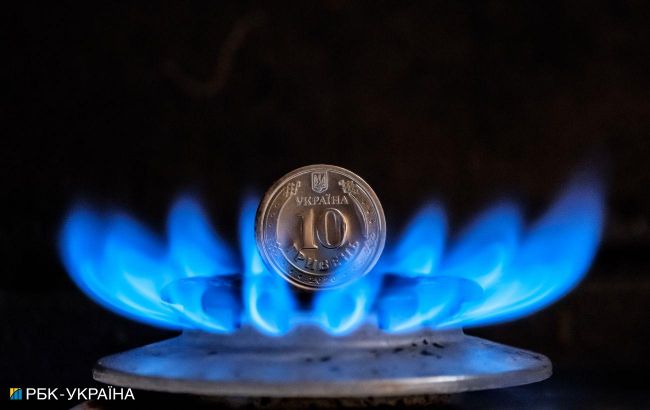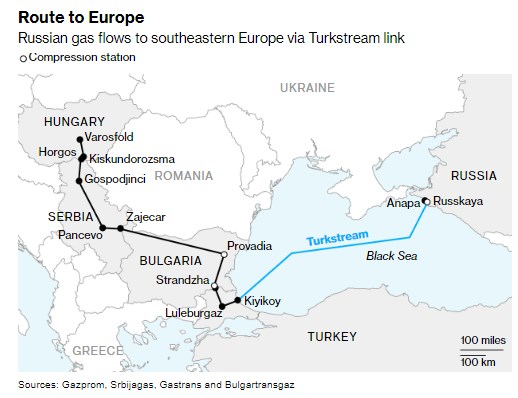Bulgaria charges additional tax on Russian gas transit
 Illustrative photo (Vitalii Nosach, RBC-Ukraine)
Illustrative photo (Vitalii Nosach, RBC-Ukraine)
Bulgaria is beginning to reap the benefits of a new tax on the import and transit of natural gas pipelines from Russia. The tax, which came into effect in mid-October, aims to boost revenues and limit Russia's ability to finance the war against Ukraine, according to Bloomberg.
Finance Minister Assen Vassilev said that the government expects to receive the first monthly revenues within the next ten days.
Whether Sofia can achieve these goals remains uncertain. Hungary, heavily reliant on Russian gas transiting through Bulgaria, has declared the measure illegal and demands that the European Union conduct an investigation. Serbia and North Macedonia have also expressed concern.
Russian energy giant Gazprom has not indicated whether it intends to pay, casting doubt on the effectiveness of this measure.
"Let’s hope it’ll happen," Vassilev told reporters last week, speaking about Gazprom’s potential payment. "Let’s not speculate."
Gas transit through Bulgaria
Last year, Russia
cut off gas for Bulgaria’s domestic supplies after the Balkan nation refused to pay for the fuel in rubles, which Moscow demanded after the start of the war. Still, Bulgaria remains a key transit route for Russian gas to the region.
A Bulgarian extension of the TurkStream pipeline under the Black Sea — which Russia uses to bypass transit through Ukraine — is almost entirely occupied by Gazprom under a long-term contract.

https://www.bloomberg.com/
Refusal to pay the tax, set at $11 per megawatt-hour, could lead Bulgaria to block or seize assets of non-compliant companies, according to Vasilуv's statement last month.
Bulgaria, which used to receive almost all of its gas from Russia before the war in Ukraine, now satisfies one-third of its annual needs through a long-term contract with Azerbaijan's SOCAR. It also receives liquefied natural gas from terminals in Greece and Türkiye. Serbia is also working on a deal with SOCAR and a new pipeline with Bulgaria.
Previously, Bulgarian Prime Minister Nikolai Denkov said that Hungary and Serbia are fueling the Kremlin's war machine and are not attempting to find alternative energy sources.

